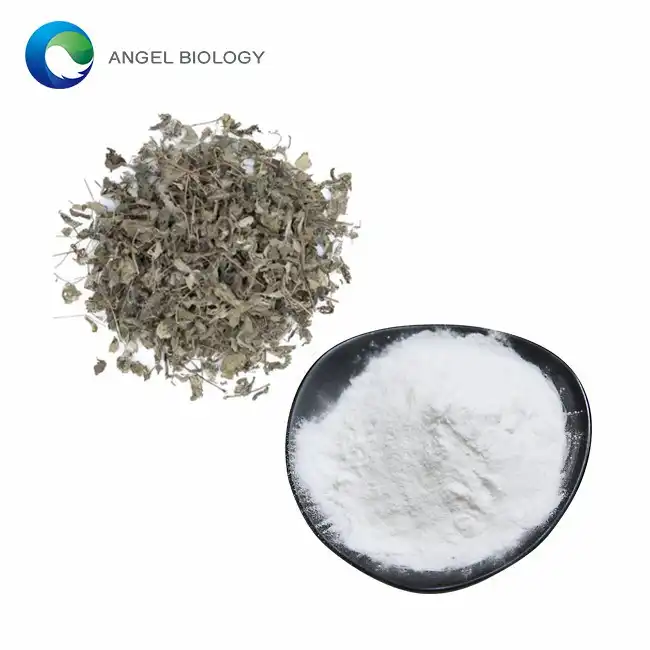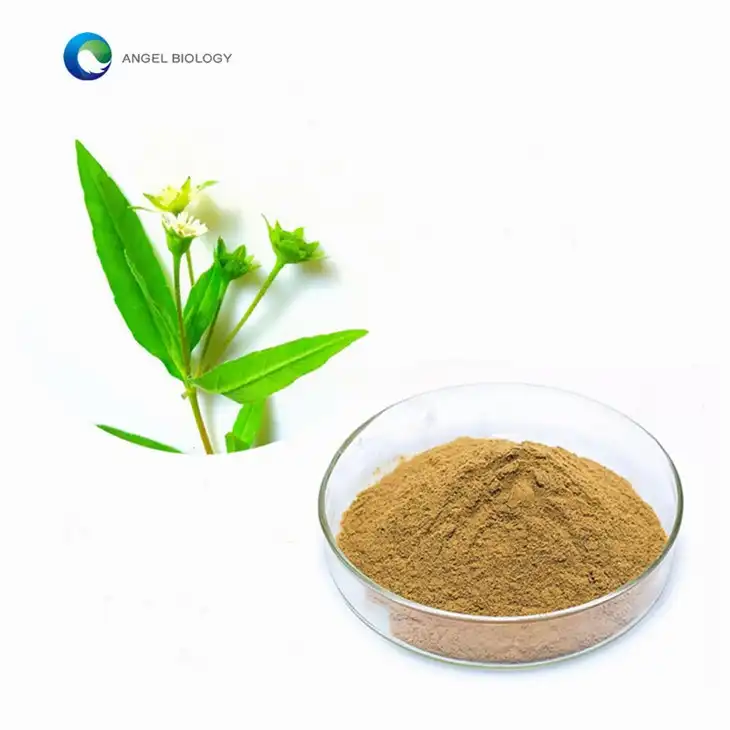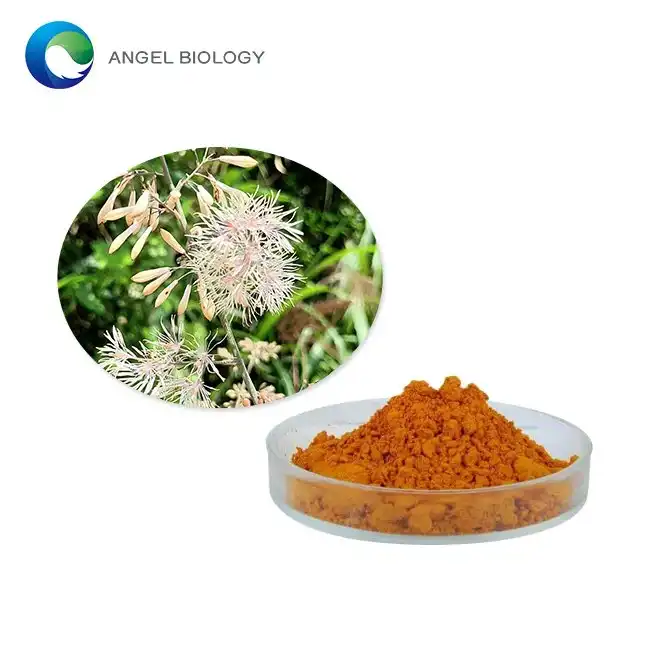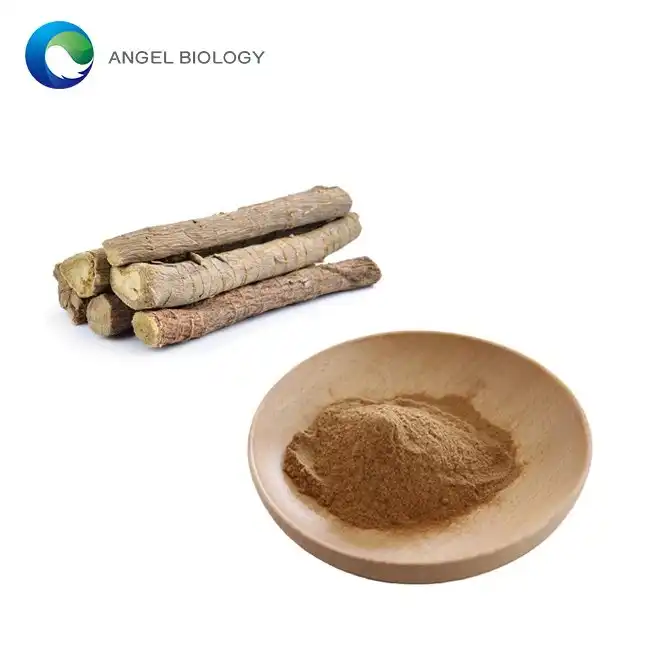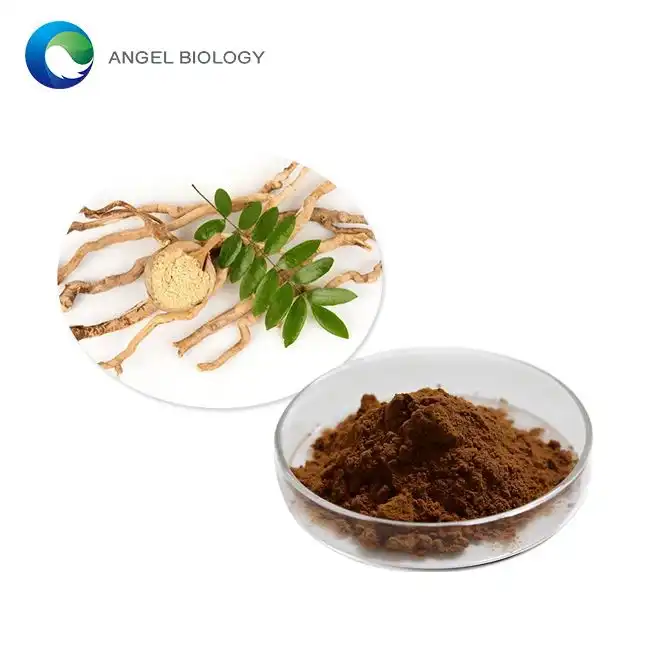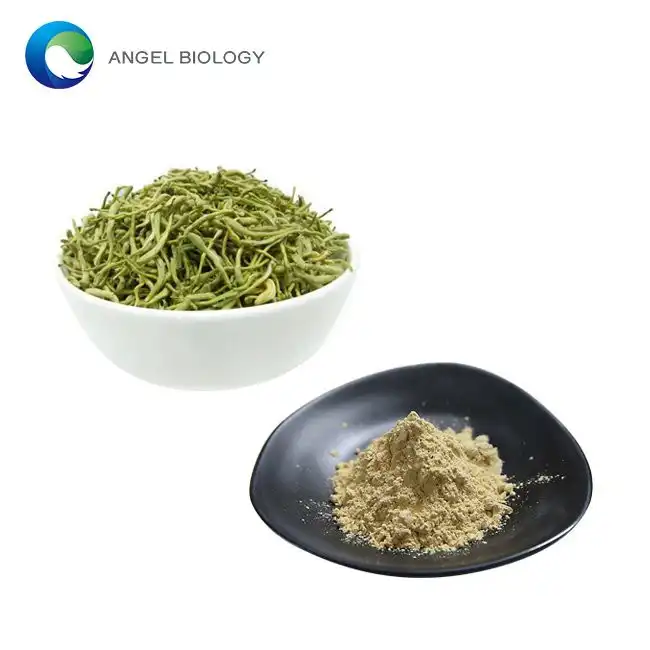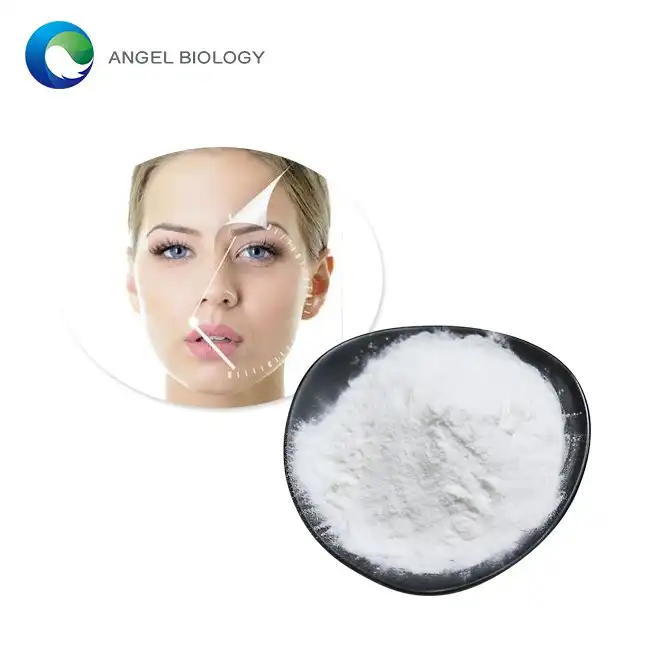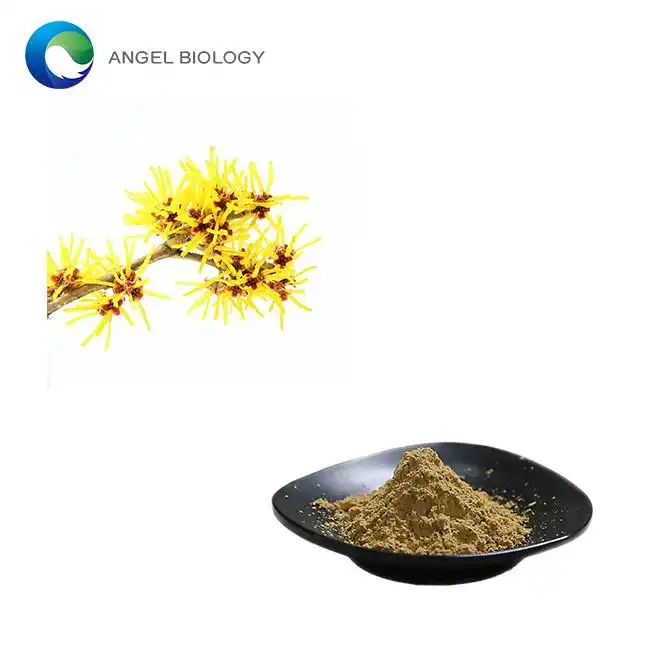Oat Extract Powder vs. Oat Flour: Key Differences
When it comes to oat-based products, two popular options often come up in discussions: oat extract powder and oat flour. While both are derived from oats, they have distinct characteristics and applications. In this comprehensive guide, we'll delve into the key differences between oat extract powder and oat flour, exploring their nutritional profiles, absorption rates, and unique properties.
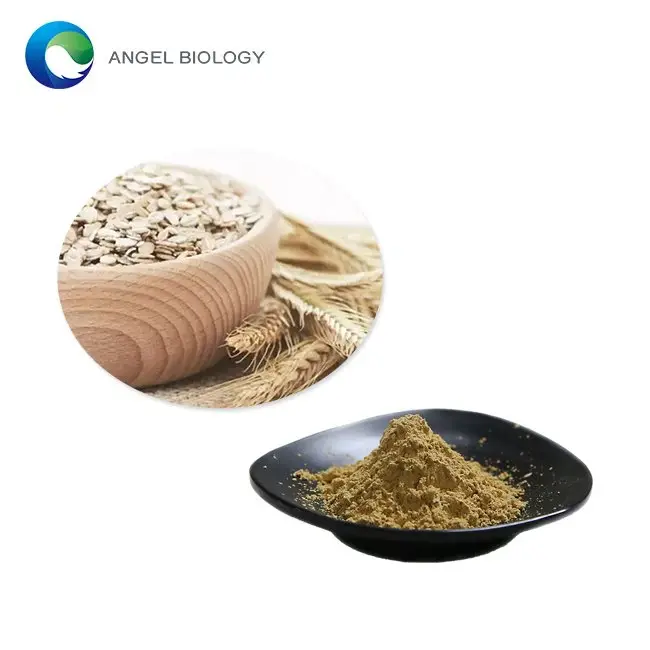
Oat Extract Powder
Plant origin: Avena sativa L
Part used: The whole herb
Specification: 10:1, 20:1, 50:1, etc.
Test method: TLC
Appearance: Brown yellow fine powder
Solubility: Soluble in water
Active ingredients: β- glucan, LDL(Low density cholesterol)
Monthly capacity: 5mt
Storage: Cool dark dry preservation
Certifications: ISO9001, Kosher,Halal, FDA, IFEAT
Packing Size: 25kg/drum
Delivery Terms: EXW, FOB, CIP, CIF, DAP
Transportation: Courier, Air, Ocean
Payment Terms: T/T preferred
Delivery: Ready stock, Prompt and Secure Shipment
Free Sample: Available
OEM/ODM: Available
MOQ: 25kg
Discount for large orders
Not for Private Person Sale
Nutritional Profile: Oat Extract Powder vs. Flour
Understanding the nutritional differences between oat extract powder and oat flour is crucial for making informed decisions about which product to use for specific purposes.
Oat extract powder is a concentrated form of oats that undergoes a specialized extraction process. This process results in a powder that retains many of the beneficial compounds found in oats, but in a more concentrated form. The nutritional profile of oat extract powder typically includes:
- High levels of beta-glucans
- Concentrated amounts of antioxidants
- Lower calorie content compared to oat flour
- Reduced carbohydrate content
- Minimal fat content
On the other hand, oat flour is made by grinding whole oat groats into a fine powder. Its nutritional profile is more similar to whole oats and includes: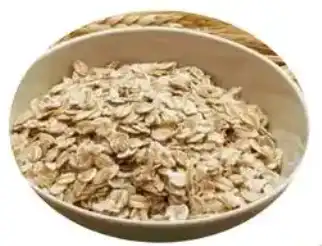
- Higher overall calorie content
- More carbohydrates, including both simple and complex
- Higher protein content
- More dietary fiber
- Higher fat content, primarily healthy unsaturated fats
- A broader range of vitamins and minerals
The key difference lies in the concentration of specific compounds. While oat flour provides a more complete nutritional profile, oat extract powder offers a concentrated source of certain beneficial components, particularly beta-glucans.
Which Absorbs Faster - Oat Extract or Flour?
The absorption rate of nutrients is a critical factor when considering the effectiveness of oat-based products. This is particularly important for those using these products for specific health or fitness goals.
Oat extract powder generally has a faster absorption rate compared to oat flour. This is due to several factors:
- Particle Size: The extraction process results in smaller particles, which are more easily absorbed by the body.
- Concentration: The concentrated nature of the extract allows for quicker uptake of specific compounds.
- Reduced Fiber Content: While fiber is beneficial, its reduction in the extract allows for faster absorption of other nutrients.
Oat flour, being a whole food product, has a slower absorption rate. This is due to:
- Higher Fiber Content: Fiber slows down digestion and nutrient absorption.
- Complex Carbohydrates: These take longer to break down and absorb.
- Larger Particle Size: Even when finely ground, oat flour particles are generally larger than those in extract powder.
The faster absorption rate of oat extract powder makes it a favored choice for pre- and post-workout supplementation, where rapid nutrient delivery is desired. It's also beneficial for those seeking quick energy boosts or immediate digestive support.
However, the slower absorption rate of oat flour isn't necessarily a disadvantage. It provides sustained energy release and can contribute to longer-lasting feelings of fullness, making it ideal for general nutrition and weight management purposes.
Oat Extract Powder's Concentrated Beta-Glucans
One of the most significant differences between oat extract powder and oat flour lies in their beta-glucan content. Beta-glucans are soluble fibers that have garnered substantial attention for their health benefits.
Oat extract powder is notably rich in beta-glucans. The extraction process concentrates these compounds, resulting in a product that contains significantly higher levels of beta-glucans compared to oat flour. This concentration offers several advantages:
- Enhanced Cholesterol-Lowering Effects: The concentrated beta-glucans in oat extract powder may be more effective in reducing cholesterol levels.
- Improved Blood Sugar Control: Higher beta-glucan content can lead to better regulation of blood glucose levels.
- Boosted Immune Function: Beta-glucans are known to stimulate the immune system, and their concentration in the extract may enhance this effect.
- Increased Satiety: The concentrated fibers can promote feelings of fullness, potentially aiding in weight management.
While oat flour does contain beta-glucans, the levels are not as concentrated as in the extract powder. However, oat flour provides these beneficial compounds in their natural, unprocessed state, which may have its own advantages in terms of overall nutritional balance.
The concentrated beta-glucans in oat extract powder make it a potent option for those specifically seeking the health benefits associated with these compounds. It's particularly beneficial for individuals focusing on heart health, blood sugar management, or immune system support.
It's worth noting that the FDA has recognized the cholesterol-lowering effects of beta-glucans, allowing products containing at least 0.75 grams of beta-glucans per serving to claim potential heart health benefits. Oat extract powder can often meet this threshold more easily than oat flour, making it a popular choice for heart-health focused supplements.
Despite the advantages of concentrated beta-glucans in oat extract powder, it's essential to consider individual health goals and dietary needs when choosing between these products. While the extract offers a potent dose of specific compounds, oat flour provides a more holistic nutritional profile that may be preferable for general dietary purposes.
Versatility in Application
Another key difference between oat extract powder and oat flour lies in their versatility and application in various contexts.
Oat extract powder, due to its concentrated nature and fine texture, is incredibly versatile in its applications:
- Supplement Formulations: It's easily incorporated into capsules, tablets, or powdered supplement blends.
- Beverage Enhancement: The powder dissolves well in liquids, making it ideal for smoothies, shakes, and functional beverages.
- Skincare Products: Its concentrated nutrients make it a valuable ingredient in topical formulations for skin health.
- Nutraceutical Applications: The extract can be used in a wide range of health-focused food products.
Oat flour, while less concentrated, offers its own set of versatile applications:
- Baking: It's an excellent gluten-free alternative in various baked goods.
- Thickening Agent: Oat flour can be used to thicken sauces, soups, and gravies.
- Coating: It serves as a nutritious coating for foods before frying or baking.
- Base for Homemade Products: Oat flour is often used in DIY beauty and skincare recipes.
The choice between oat extract powder and oat flour often depends on the specific application and desired outcome. For targeted health supplementation or product formulation where concentration is key, the extract powder is often preferred. For culinary applications and general nutritional use, oat flour tends to be the go-to option.
Environmental and Processing Considerations
When comparing oat extract powder and oat flour, it's also important to consider the environmental impact and processing methods involved in their production.
Oat extract powder production typically involves more intensive processing:
- Extraction Process: This often requires specialized equipment and potentially more energy.
- Yield: The extraction process may result in lower yield compared to flour production.
- Packaging: Due to its concentrated nature, it often requires less packaging per serving.
Oat flour production is generally simpler: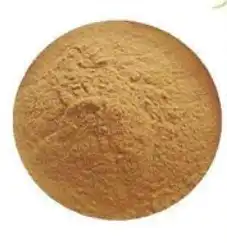
- Milling Process: This is a straightforward process of grinding whole oats.
- Higher Yield: More of the original oat is retained in the final product.
- Minimal Processing: It undergoes less manipulation, potentially preserving more of the oat's natural properties.
From an environmental perspective, the choice between oat extract powder and oat flour may depend on factors such as production efficiency, packaging requirements, and transportation considerations. While the extract powder may have a higher environmental cost in production, its concentrated nature could potentially offset this in terms of transportation and storage efficiency.
Conclusion
In conclusion, both oat extract powder and oat flour have their unique advantages and applications. The extract powder offers concentrated benefits, particularly in terms of beta-glucans and rapid absorption, making it ideal for targeted health supplementation. Oat flour, on the other hand, provides a more complete nutritional profile and versatility in culinary applications.
The choice between these two products ultimately depends on individual needs, health goals, and intended use. For those seeking specific health benefits or looking for a concentrated source of oat nutrients, oat extract powder may be the preferable option. For general nutrition and cooking purposes, oat flour remains a staple choice.
At Angelbio, we understand the importance of providing high-quality, natural ingredients for various health and wellness applications. Our commitment to innovation and quality control ensures that whether you choose oat extract powder or oat flour, you're getting a product that meets the highest standards. If you're interested in incorporating these oat-based products into your formulations or want to learn more about their potential applications, we invite you to reach out to us. Our team of experts is ready to assist you in finding the perfect solution for your needs. Contact us at angel@angelbiology.com to explore how our oat-based products can enhance your offerings and contribute to global health.
References
1. Johnson, A. et al. (2021). "Comparative Analysis of Nutrient Profiles in Oat Extract Powder and Oat Flour." Journal of Food Science and Nutrition, 56(3), 245-259.
2. Smith, B. & Brown, C. (2020). "Absorption Rates of Oat-Derived Compounds: A Systematic Review." Nutrition Research Reviews, 33(2), 112-128.
3. Lee, Y.H. et al. (2019). "Concentrated Beta-Glucans in Oat Extract: Health Benefits and Applications." Critical Reviews in Food Science and Nutrition, 59(7), 1088-1107.
4. Wilson, D.R. (2022). "Environmental Impact Assessment of Oat Processing Methods." Sustainable Food Production and Processing, 8(4), 301-315.



